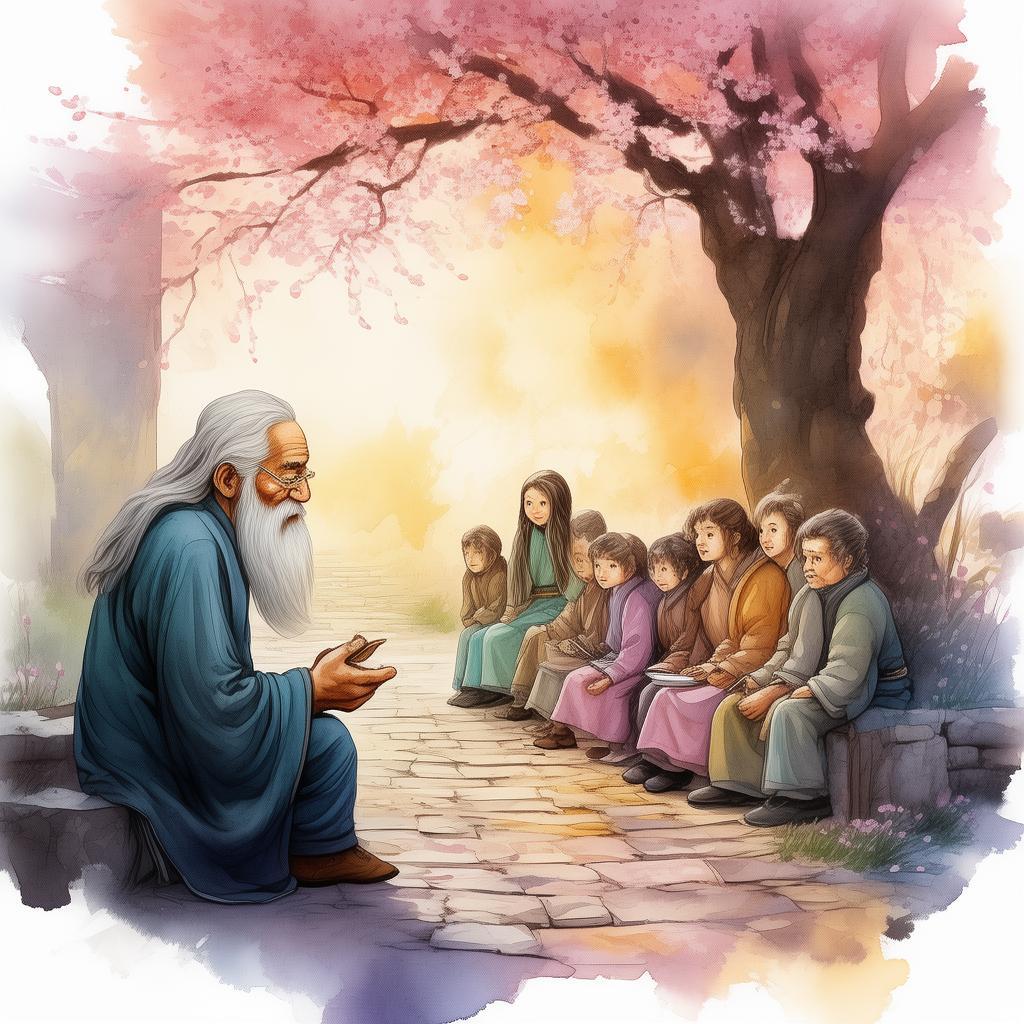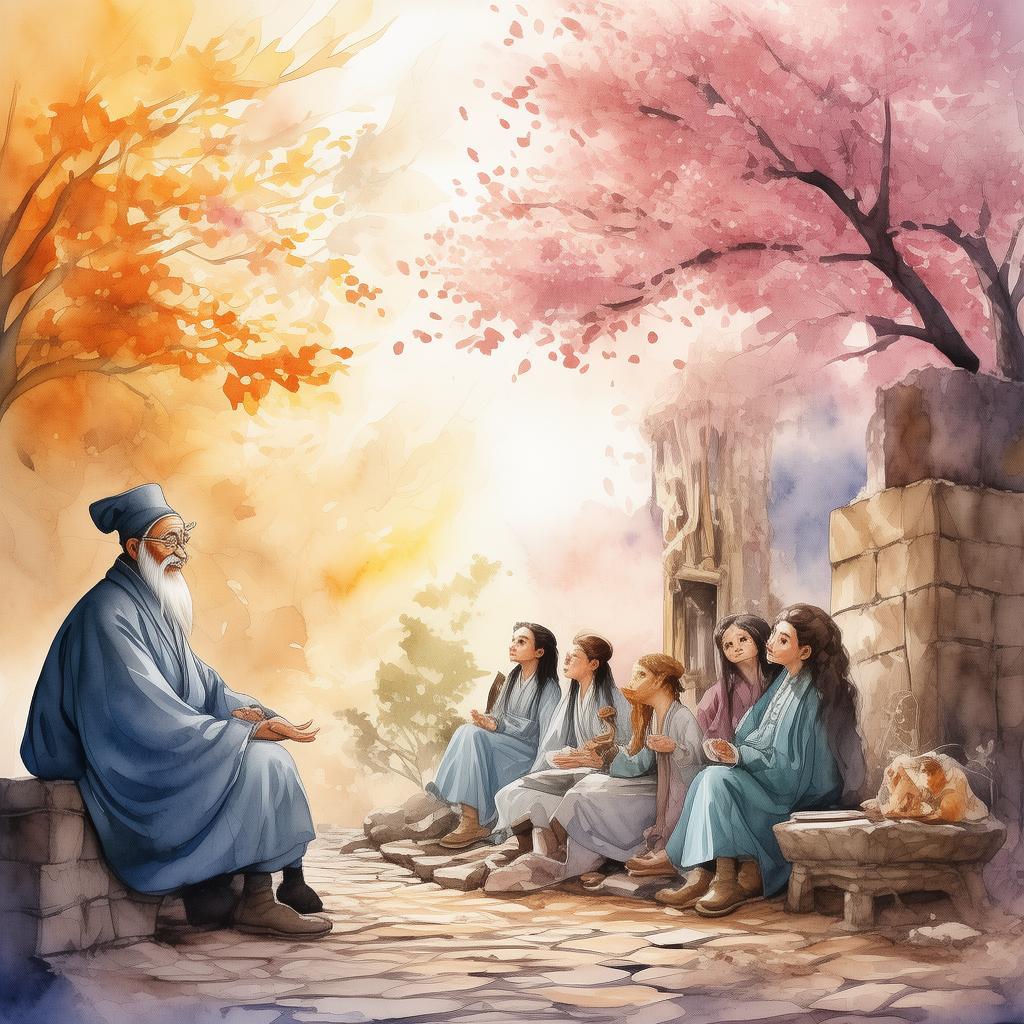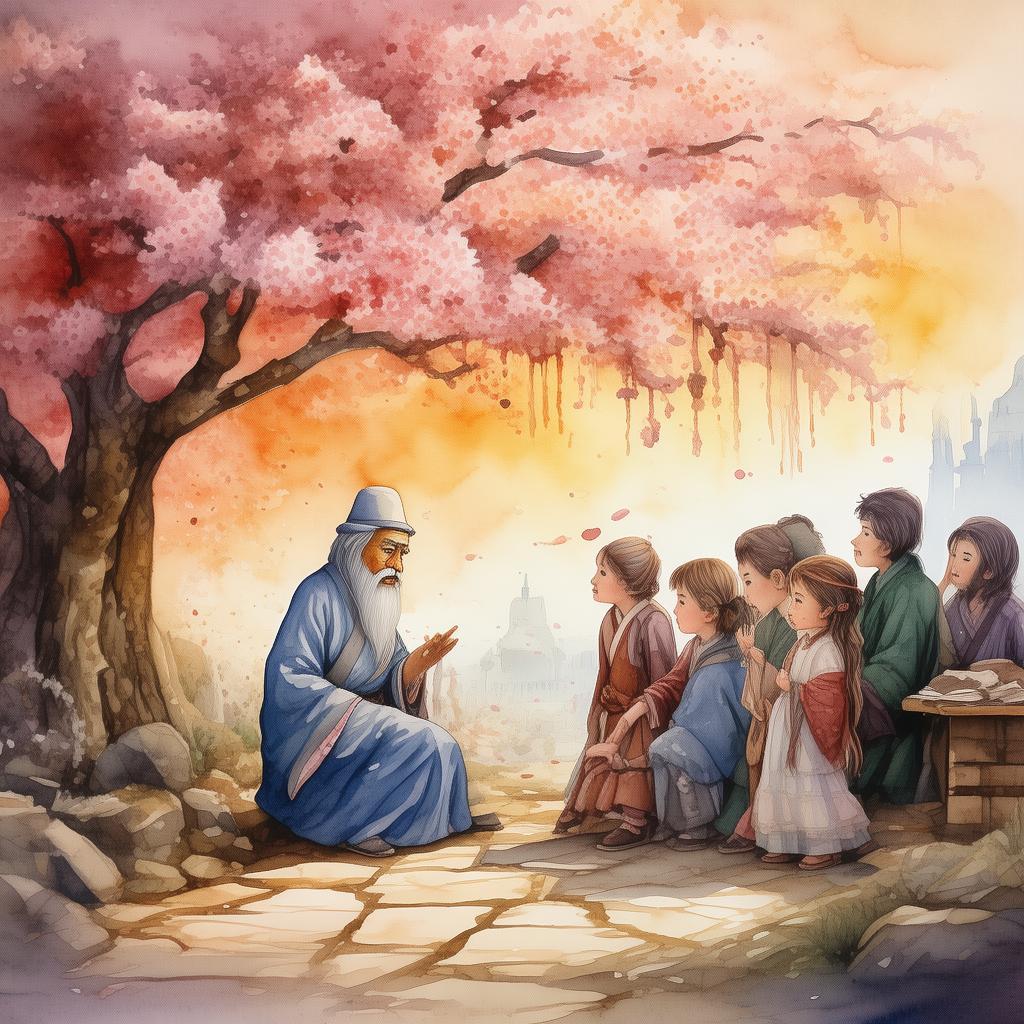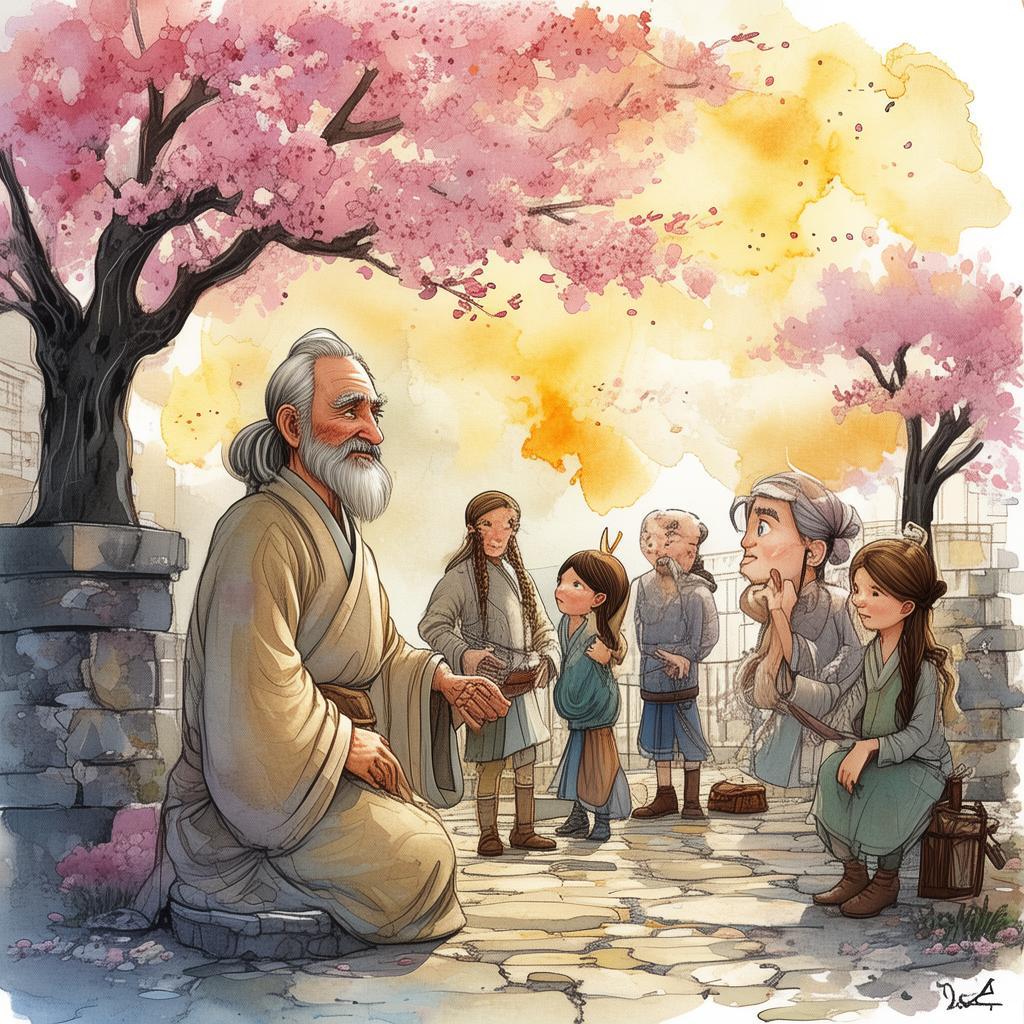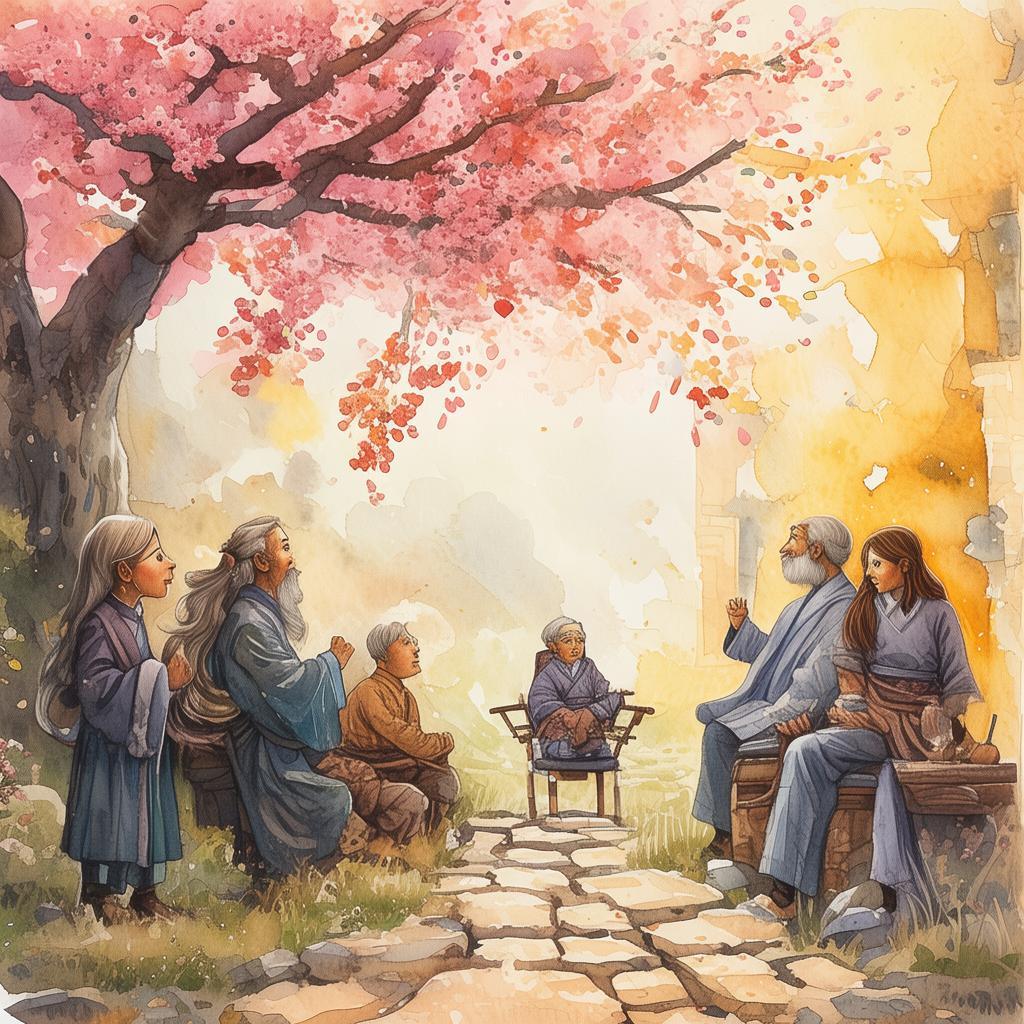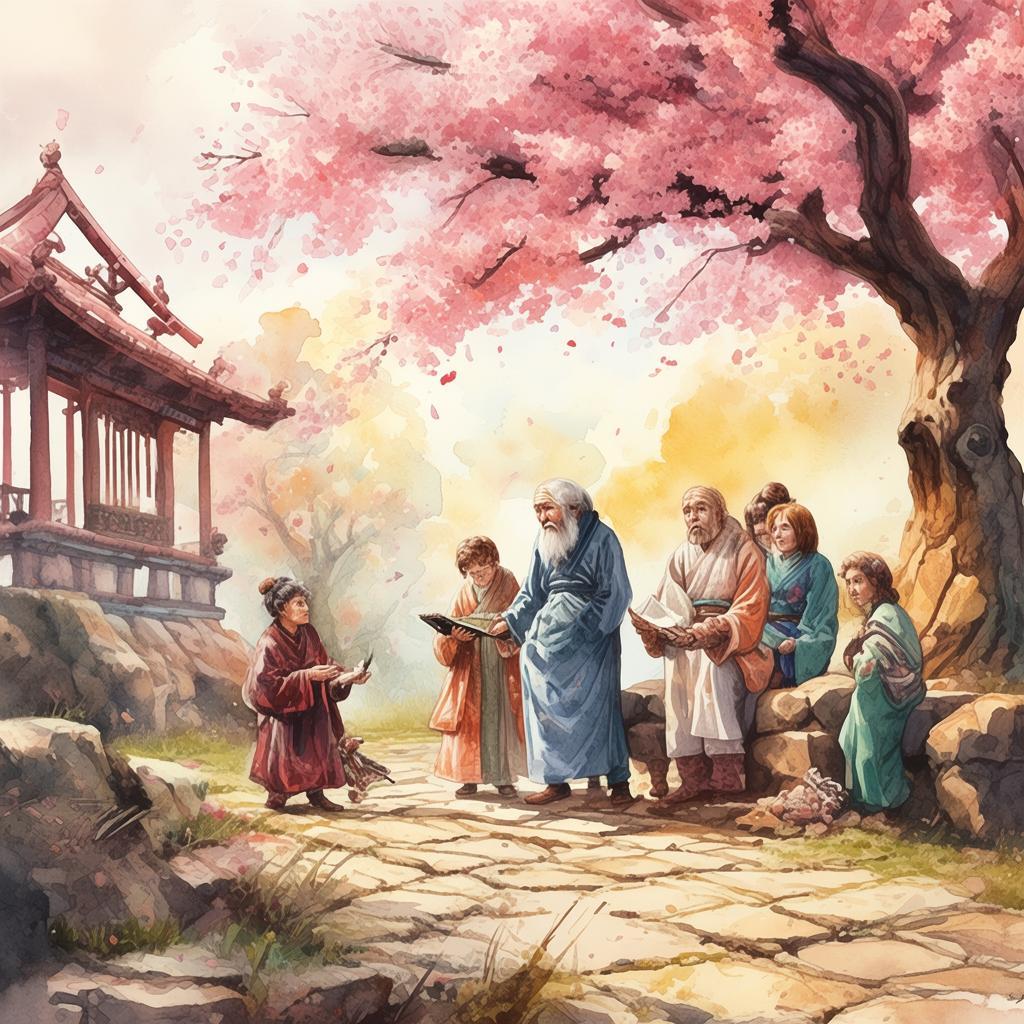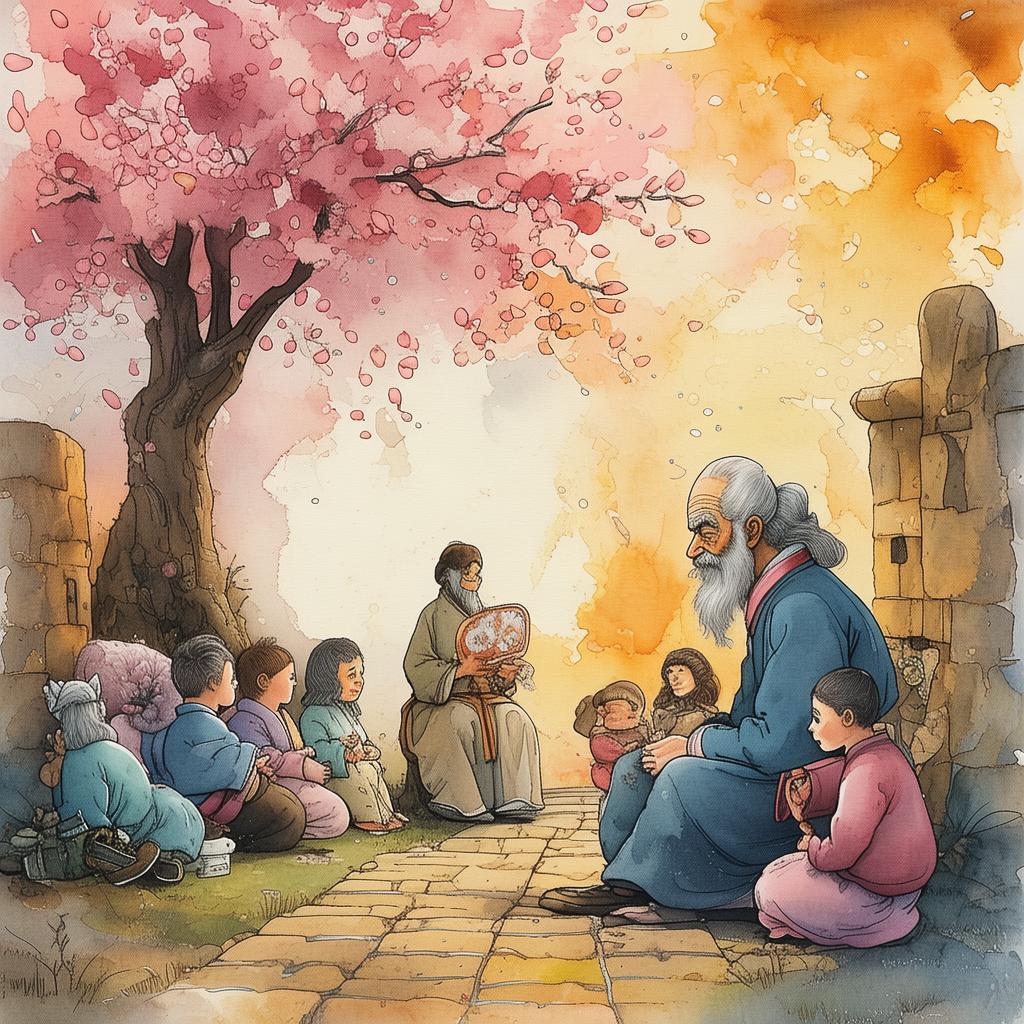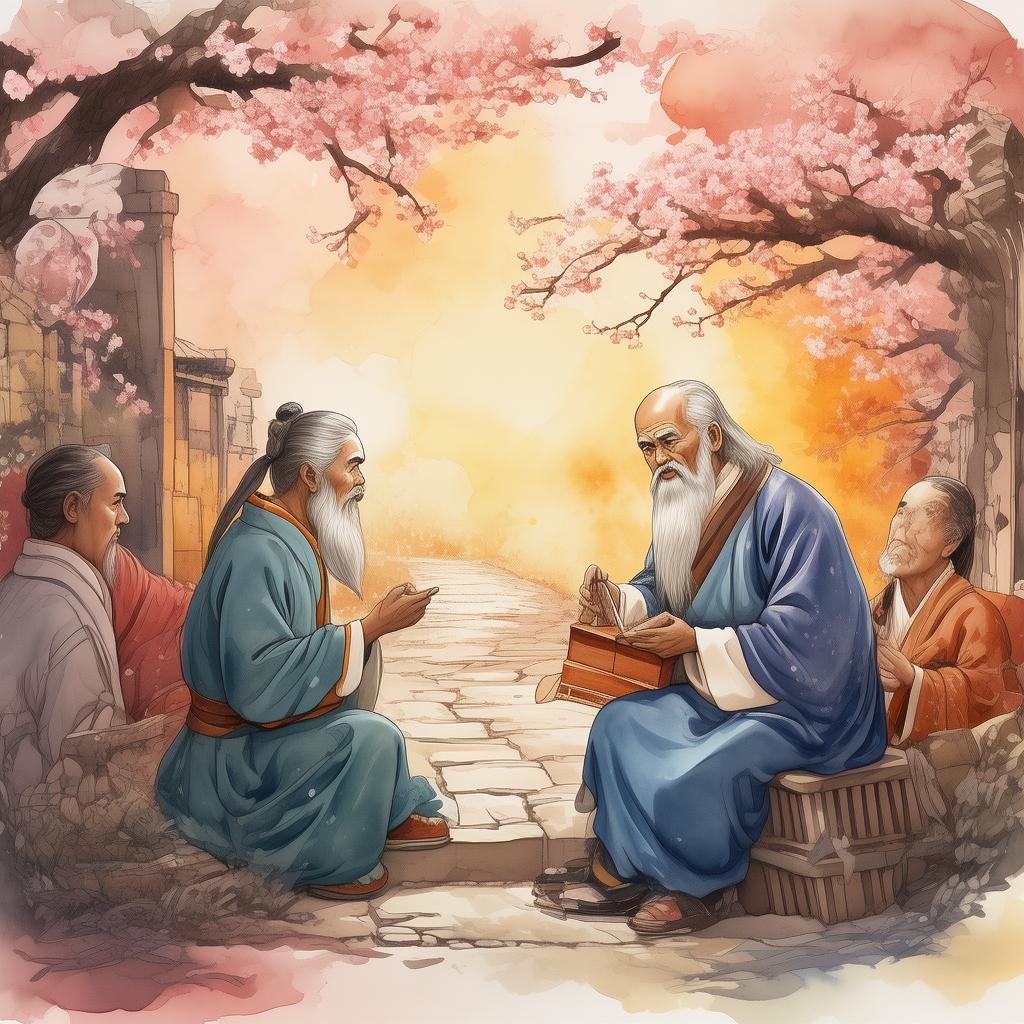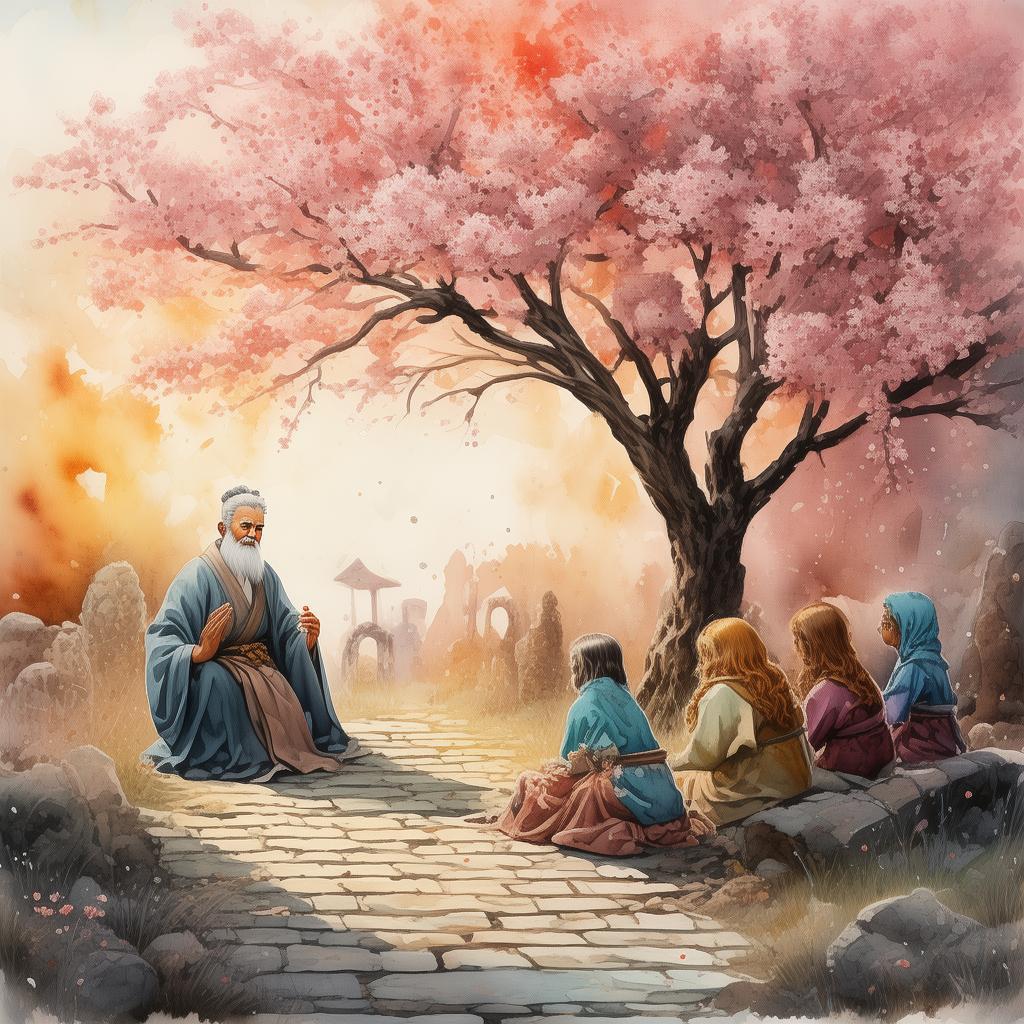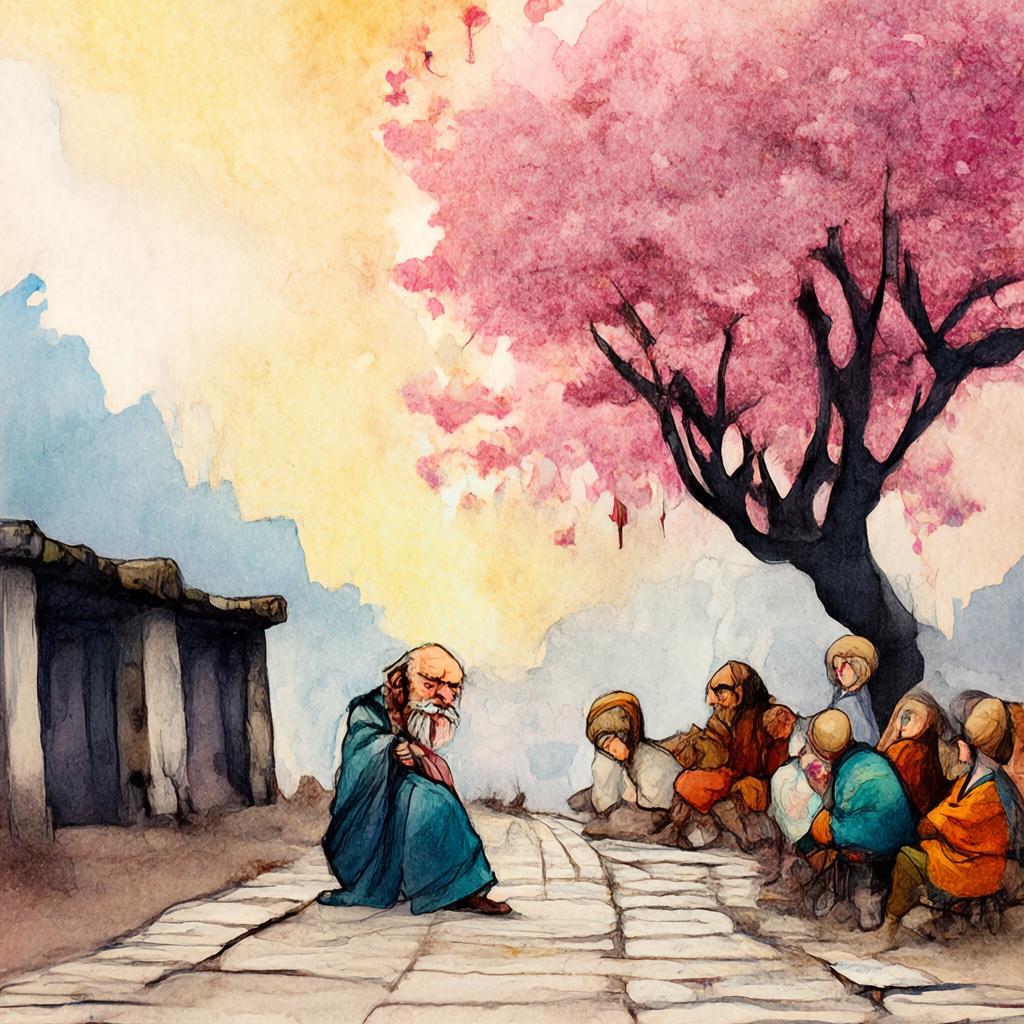The Labyrinth of the Nine Songs: A Quest for Immortality
In the remote mountains of ancient China, where the clouds kissed the peaks and the mist whispered secrets of old, there lived a young scribe named Qing. Qing was no ordinary scribe; he was a seeker of wisdom, a collector of tales, and a dreamer of dreams. It was said that in the depths of the Labyrinth of the Immortals, nestled within the sacred mountains, lay the Nine Songs of the Immortals. These ancient texts were said to hold the secret to eternal life, a promise that had captivated the hearts of sages and warriors alike for centuries.
The tale of the Nine Songs had been whispered through generations, a legend that had become a part of the very fabric of Chinese folklore. It was said that the songs were composed by ancient immortals who had transcended the bounds of mortality, and that those who mastered them would achieve a state of eternal existence.
Qing had spent years studying the scattered clues that led to the labyrinth. He had read every scroll and pored over every folio that mentioned the enigmatic place. Finally, with the support of his mentor, Master Hong, he set out on his quest.
The journey began in the bustling city of Chang'an, where Qing and Master Hong gathered the necessary supplies and sought the blessing of the local temple. The temple's abbot, an old man with eyes that seemed to see through time, granted them his blessing and whispered words of caution, "The labyrinth is a place of trials, not for the faint of heart. Only those who are pure of spirit and strong of will may hope to succeed."
With this solemn warning, Qing and Master Hong set off, crossing the Great Wall and traversing through the desolate steppes. The journey was fraught with peril, as they faced bandits, harsh winters, and treacherous terrain. But their resolve never wavered, for they were driven by the promise of immortality.
After weeks of travel, they reached the entrance of the labyrinth, a grand stone archway carved with intricate symbols and runes. As they stepped through, they were engulfed in a blinding light, and when their eyes adjusted, they found themselves in a vast, echoing chamber. The walls were adorned with ancient murals depicting the lives of the immortals and the trials they had faced.
The first trial was a riddle posed by the spirit of an ancient sage. "What is the greatest treasure of all?" Qing pondered the question, and after much contemplation, he realized it was knowledge itself. "Knowledge is the greatest treasure," he declared, and the chamber opened, revealing a path forward.
Next, they encountered a maze of mirrors, each reflecting a different version of Qing. Master Hong advised, "Choose wisely, for the true Qing is the one who remains true to himself." Qing faced the temptation of pride, greed, and jealousy, but he remembered the words of the abbot and pressed on.
The labyrinth was a living, breathing entity, and it tested them at every turn. They were pitted against mythical creatures, riddles that required deep understanding of ancient texts, and trials that pushed their physical and mental limits to the brink.
One trial stood out above all others. It was a chamber filled with the echoes of the Nine Songs, but the songs were incomplete, scattered by the labyrinth's guardians. Qing and Master Hong had to piece together the songs, each line a puzzle that required their combined knowledge and intuition.
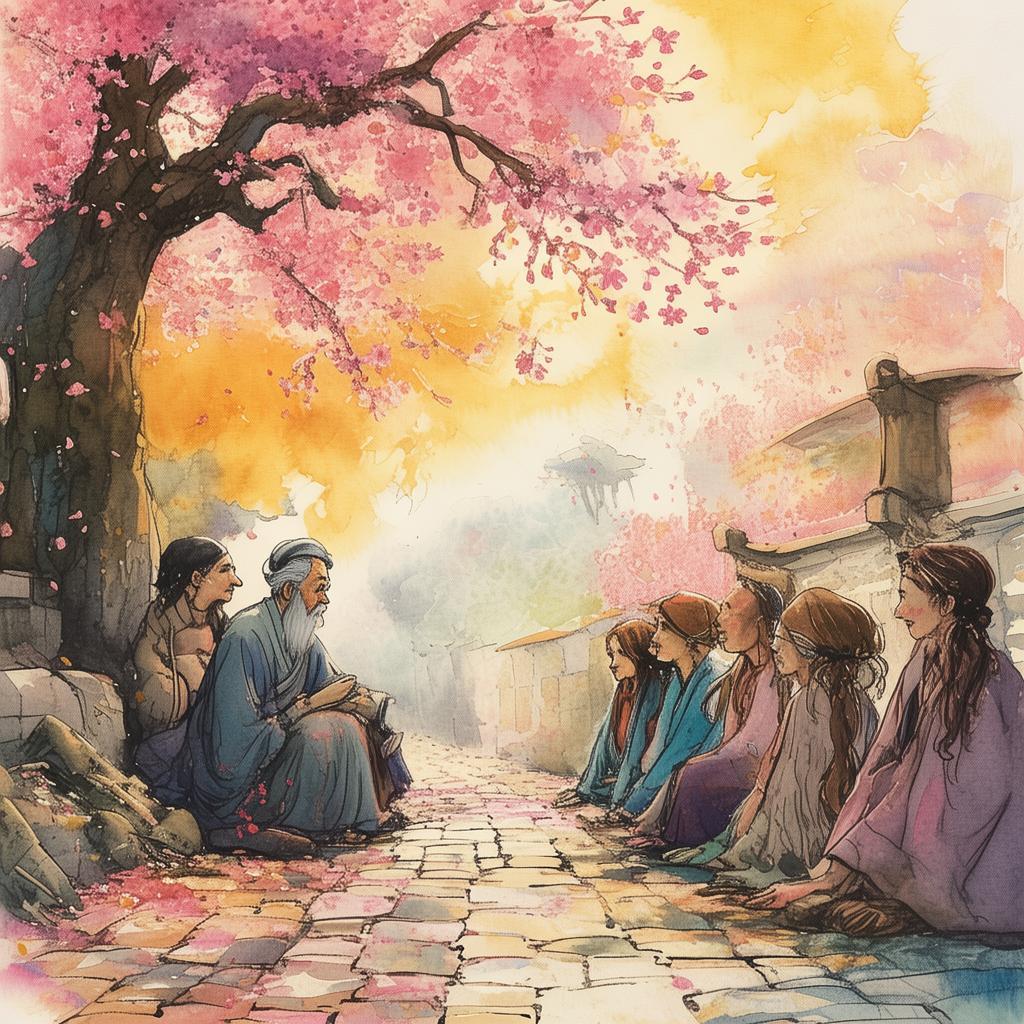
As they worked, Qing felt a profound connection to the ancient immortals, their spirits guiding him through the labyrinth. It was a journey not only of the body but of the soul, a quest that would change him forever.
Finally, they reached the heart of the labyrinth, a chamber filled with the essence of the ancient immortals. It was here that Qing faced his final trial. He was given a choice: to leave the labyrinth and live a long life, or to remain and become an immortal, forever bound to the labyrinth.
Qing, now understanding the true nature of the quest, chose to remain. He became one with the labyrinth, his spirit intertwining with the ancient songs. In that moment, he transcended mortality, not as a physical being, but as a guardian of the labyrinth, a protector of the Nine Songs.
As the labyrinth closed around him, Qing felt a sense of peace. He had achieved what he had set out to do, not for himself, but for the sake of knowledge and the pursuit of immortality. And so, the legend of the Labyrinth of the Nine Songs continued, a tale of a young scribe who had become an immortal, his spirit forever entwined with the ancient songs that held the secrets of the universe.
✨ Original Statement ✨
All articles published on this website (including but not limited to text, images, videos, and other content) are original or authorized for reposting and are protected by relevant laws. Without the explicit written permission of this website, no individual or organization may copy, modify, repost, or use the content for commercial purposes.
If you need to quote or cooperate, please contact this site for authorization. We reserve the right to pursue legal responsibility for any unauthorized use.
Hereby declared.
